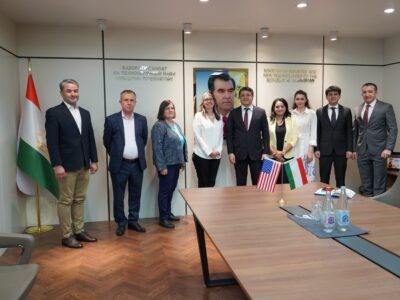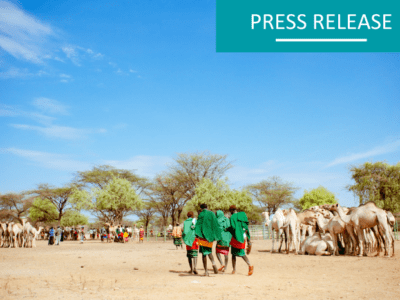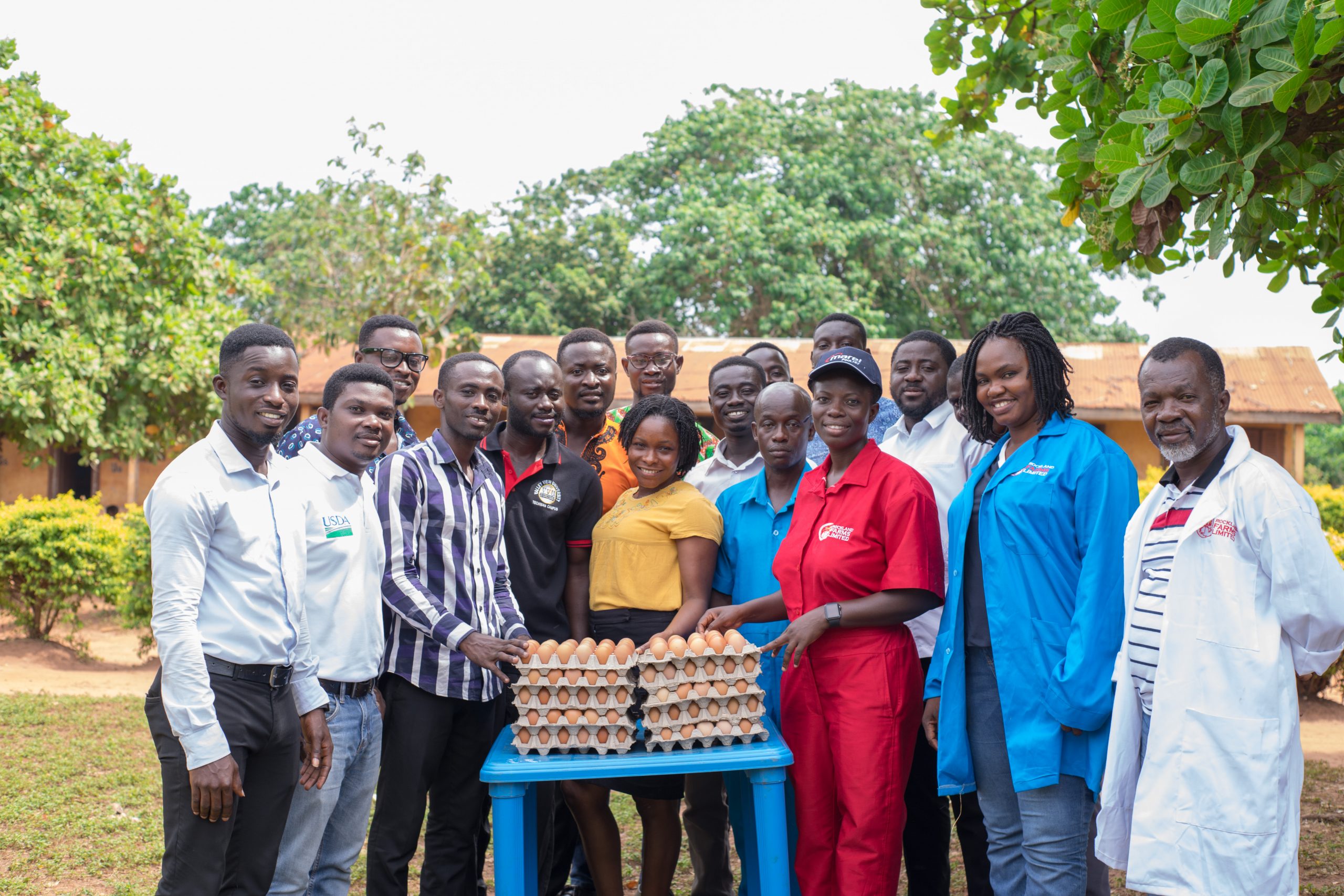
In Ghana, poultry producers are exploring new ways to facilitate trainings and conduct business online, while restrictions from the global outbreak of COVID-19 threaten to disrupt their livelihoods. As many markets close and business move toward remote working, the Ghana Poultry Project, which is funded by the United States Department of Agriculture (USDA) and implemented by ACDI/VOCA, is helping the poultry sector adapt.
Online Animal Husbandry Training
Training sessions that once happened in person are now happening online using Zoom. In partnership with several government agencies, staff recently set up a five-day, online training of trainers on animal husbandry to business service providers in the field to deepen their understanding of the sector and ensure more effective service delivery to poultry producers, even beyond the project.
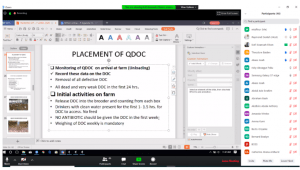
These sessions, which lasted for four hours a day, included about 50 participants who all received digital literacy training prior to using Zoom. The training exceeded project staff’s expectations in how effective, cost efficient, and interactive it was.
Moving Toward E-Commerce
Prior to the COVID-19 outbreak, the USDA Ghana Poultry Project partnered with MTN, a telecommunications service provider, to develop a mobile money service for the poultry sector. Most project participants received SIM cards that allowed them to pay their employees and suppliers as well as receive payments from customers at no cost to them. Mobile technology cuts down on the risks of cash transactions and fosters financial inclusion among Ghana’s rural communities, who are often excluded. This is helping market actors continue conducting business during the pandemic.
Digital Marketing of the Poultry Sector
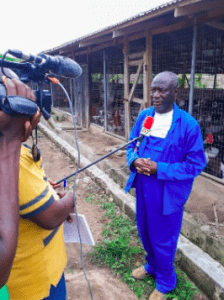
With support from the project, social media groups helped spread information about the large volume of products, especially eggs, that were stranded in producer regions due to market closures. In just two days, this online marketing effort facilitated the quick sale of more than 5,000 crates of eggs. The project also partnered with GTV, the national public broadcast network, to promote local poultry businesses and boost consumer confidence in the products’ safety and availability during the crisis. The project scheduled a meeting between digital marketing firms, app developers, poultry producers, and input dealers to discuss the feasibility of creating a one-stop digital platform connecting market actors.
Programming Shifts and Remote Data Collection
Internally, the USDA Ghana Poultry Project staff also had to shift how they operate, including how they monitor and evaluate project activities. Staff conducted data collection for their annual survey of project participants over the phone, after being trained to use a remote survey platform called KoBoCollect. They collected the data in real time across three regions, logging it into the survey app so that remote staff could download and analyze it without delay. The process was effective, timely and, most importantly, protected the health of participants and provided the project with knowledge to inform their upcoming activities.
While COVID-19 cases in Ghana remain low, the disruption to local businesses is ongoing. As the pandemic evolves, the USDA Ghana Poultry Project will continue to adjust its activities to better support local poultry enterprises in meeting both the supply and demand needs.
Read more about the USDA Ghana Poultry Project.
Read more about our work in Ghana.


